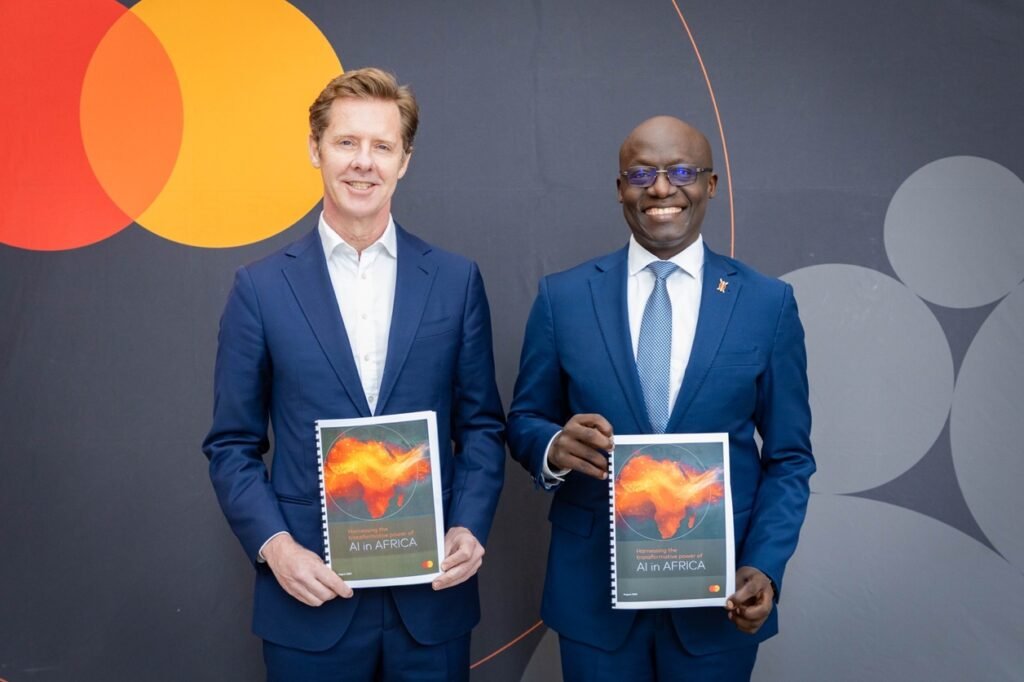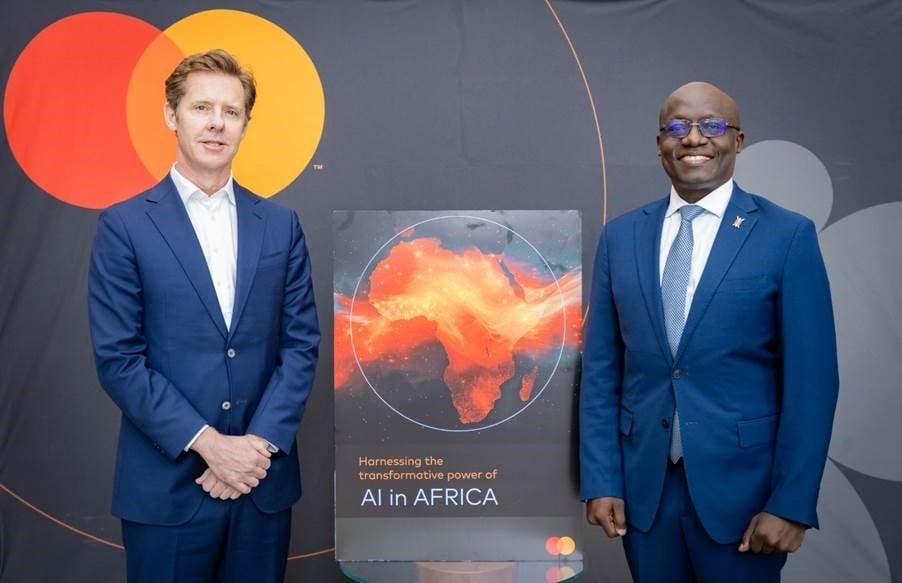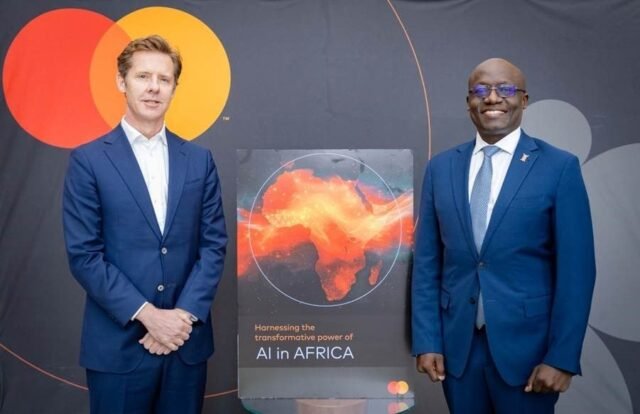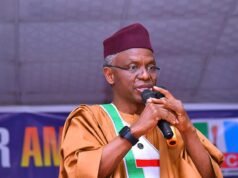Africa is standing at the threshold of a technological revolution — one that promises to reshape its economies, societies, and futures. According to a compelling new whitepaper by Mastercard, the continent’s artificial intelligence (AI) market is projected to balloon from USD 4.5 billion in 2025 to a staggering USD 16.5 billion by 2030. That’s nearly a fourfold increase in five years — a signal that Africa is not just joining the AI party but may soon be leading it.
A Continental Tipping Point: Why the AI Boom Is Gaining Momentum
At its core, Mastercard’s report — “Harnessing the Transformative Power of AI in Africa” — lays out a powerful narrative: Africa isn’t simply on the receiving end of AI technologies; it is actively architecting its technological destiny. The continent’s distinctive strengths — booming youthful demographics, extensive mobile-first infrastructure, and an ingrained entrepreneurial energy — are all being leveraged to leapfrog development hurdles.
Standout voices in the report paint this backdrop vividly. Mark Elliott, Mastercard’s Division President for Africa, emphasises how AI isn’t just theoretical — it’s already improving daily life across farms, clinics, and classrooms. Yet, he notes loudly, “To unlock its full potential, we need serious investment in infrastructure, data, talent, and policy.” Greg Ulrich, Mastercard’s Chief AI & Data Officer, grounds the vision further, asserting that AI must be trustworthy, inclusive, and responsibly constructed — “innovation with integrity,” he calls it.

Mapping the AI Landscape: Country-Specific Highlights
Mastercard’s research dives deeper by spotlighting AI progress across four pivotal African nations:
1. South Africa — The AI Pathbreaker
With a robust foundation of infrastructure and research institutions, South Africa leads continental AI investment — drawing USD 610 million in venture capital in 2023, with expectations of reaching USD 3.7 billion by 2030. Government plans also include fostering 300 AI start-ups and training 5,000 AI professionals by the decade’s close.
2. Kenya — Silicon Savannah in Action
Kenya is putting AI to work through real-world applications: Tala uses mobile data for smarter credit scores, while Jacaranda Health’s UlizaLlama chatbot supports maternal healthcare using local languages. Kenya’s National AI Strategy (2025–2030) is central to its ambition to become the region’s AI powerhouse.
3. Nigeria — Startup Dynamism
Nigeria boasts the second-highest number of AI startups in Africa and pulled in USD 218 million in VC funding in 2023. From personalized learning platforms (like Rising Academies) to micro-finance solutions (like Kudi.ai), and AI-based governance tools, Nigeria is quickly scaling. The AI market is projected to hit USD 1.4 billion by 2025, a trajectory buoyed by active policy and innovation synergy.
4. Morocco — A North African Corridor of AI
Morocco’s AI scene is rapidly advancing in healthcare, energy, agriculture, and finance, driven by institutions like the Mohammed VI Polytechnic University and enterprises such as DeepEcho. The MoroccoAI Annual Conference facilitates dialogue and direction. Under its Digital 2030 strategy, Morocco targets USD 1.1 billion in AI investment and the creation of 240,000 digital jobs by 2030.

Understanding the Leap: From USD 4.5B to USD 16.5B
Africa’s journey to a projected USD 16.5 billion AI market by 2030 rests on multiple pillars:
- Mobile-first infrastructure provides a ready deployment ground across the continent.
- Youth and entrepreneurial spirit drive rapid adoption and daring innovation.
- Public and private sector alignment, essential for infrastructure, policy, and skill development.
Mastercard also projects that Africa could generate up to 230 million digital jobs by 2030 — through AI-enabled credit scoring, fraud detection, and other services that broaden access to formal finance.
Challenges Ahead: Ensuring the AI Boom Benefits All
Even with the promise, Africa faces real risks. The Mastercard whitepaper flags three critical areas that must be addressed to avoid exacerbating inequality:
- Data fragmentation, which can lead to skewed AI models and exclusion.
- Language diversity, where underrepresented local tongues might be ignored by mainstream AI systems.
- Regulatory inconsistencies, which could entrench digital divides between urban and rural, rich and poor.
Experts warn that without conscious efforts to cultivate inclusive AI ecosystems, the continent’s AI growth could benefit only a narrow demographic band.
Voices of Prudence and Critique
While Mastercard’s projections are optimistic, some heavyweight voices urge caution. Tech giant Meta has expressed scepticism over the USD 16.5 billion figure, suggesting that the pace of growth may be overstated. Meanwhile, Elon Musk — who himself has reportedly earmarked a similar sum for AI worldwide — is adding spotlight (if not directly resources) to Africa’s potential. Ultimately, the debate is less about the exact number and more about Africa’s emerging role in generative AI and digital transformation.
Why Africa’s AI Story Is Uniquely Powerful
Africa’s AI narrative isn’t about tech mimicry — it’s storytelling rooted in context:
- In rural farms, AI can optimise yields and monitor crop health.
- In remote clinics, AI tools can support diagnostics and care.
- In under-served schools, AI platforms can personalise learning at scale.
When paired with Africa’s mobile adoption success (think of the rise of mobile money — the Safaricom M-Pesa effect), AI could scale with similar velocity.

What Comes Next: Building the AI-Powered Africa
To make the USD 16.5 billion vision real — and inclusive — stakeholders across the board must act:
- Governments need to shape policies that promote equitable infrastructure, data equity, and skills training.
- Investors must back local innovators, not just global giants.
- Tech leaders must commit to inclusive, locally sensitive AI.
- Communities and civil society should ensure that AI solutions serve the many, not the privileged few.
As Mastercard’s leaders emphasise, AI must be responsible, trustworthy, and inclusive. Across Africa — from Lagos to Nairobi, Cape Town to Marrakech — the path ahead will test our collective ability to realise that ideal.
Conclusion: Africa’s AI Surge — We Are Watching, We Are Building
Africa’s AI transformation is more than a headline—it’s a movement powered by local innovators, global partnerships, and the continent’s resilient spirit. If the continent can address its infrastructural, regulatory, and inclusive growth challenges, the USD 16.5 billion AI industry by 2030 could become more than a forecast — it might become Africa’s defining innovation success story.
Join Our Social Media Channels:
WhatsApp: NaijaEyes
Facebook: NaijaEyes
Twitter: NaijaEyes
Instagram: NaijaEyes
TikTok: NaijaEyes





